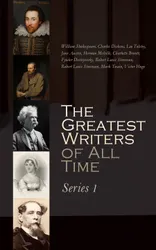Julius Caesar is a tragedy by William Shakespeare, believed to have been written in 1599. It is one of several plays written by Shakespeare based on true events from Roman history, which also include Coriolanus and Antony and Cleopatra. Although the title is Julius Caesar, Brutus speaks more than four times as many lines, and the central psychological drama of the play focuses on Brutus' struggle between the conflicting demands of honor, patriotism, and friendship. The play opens with the commoners of Rome celebrating Caesar's triumphant return from defeating Pompey's sons at the battle of Munda. Two tribunes, Flavius and Marrullus, discover the commoners celebrating, insult them for their change in loyalty from Pompey to Caesar, and break up the crowd. There are some jokes made by the commoners, who insult them back. They also plan on removing all decorations from Caesar's statues and ending any other festivities. In the next scene, during Caesar's parade on the feast of Lupercal, a soothsayer warns Caesar to "Beware the ides of March", a warning he disregards. The action then turns to the discussion between Brutus and Cassius. In this conversation, Cassius attempts to influence Brutus' opinions into believing Caesar should be killed, preparing to have Brutus join his conspiracy to kill Caesar. They then hear from Casca that Mark Antony has offered Caesar the crown of Rome three times and that each time Caesar refused it, fainting after the last refusal. Later, in act two, Brutus joins the conspiracy, although after much moral debate, eventually deciding that Caesar, although his friend and never having done anything against the people of Rome, should be killed to prevent him from doing anything against the people of Rome if he were ever to be crowned. He compares Caesar to "A serpents egg/ which hatch'd, would, as his kind, grow mischievous,/ and kill him in the shell.", and decides to join Cassius in killing Caesar.

MacBeth
William Shakespeare
audiobookbook
Die 100 schönsten Liebesromane zu Weihnachten : Stolz und Vorurteil, Kleine Frauen, Weiße Nächte, Die Bettelprinzeß, Anne auf Green Gables, Trotzige Herzen, Eugen Onegin
Louisa May Alcott, Jane Austen, Hedwig Courths-Mahler, Lucy Maud Montgomery, Emily Brontë, Victor Hugo, F. Scott Fitzgerald, Frances Burney, Charlotte Brontë, Anne Brontë, Alexandre Dumas, Charles Dickens, Eugenie Marlitt, Wilhelmine Heimburg, Elisabeth Bürstenbinder, Stendhal, Johann Wolfgang von Goethe, Pierre Choderlos de Laclos, Walter Scott, Guy de Maupassant, George Sand, Gabriele D'Annunzio, Leo Tolstoi, Rudyard Kipling, Gustave Flaubert, Nathaniel Hawthorne, Jean Jacques Rousseau, Bernardin de Saint-Pierre, Prosper Mérimée, François-René de Chateaubriand, Stefan Zweig, Eufemia von Adlersfeld-Ballestrem, Hermann Stehr, Sophie La Roche, William Shakespeare, Gottfried von Straßburg, Alexander Sergejewitsch Puschkin, Hermann Heiberg, D. H. Lawrence, Fjodor Dostojewski, Ida Boy-Ed, Arthur Schnitzler, Anatole France, Johanna Spyri, George Eliot, Nataly von Eschstruth, Marianne Ehrmann, Sophie Albrecht, Sophie Mereau, Caroline von Wolzogen, Christian August Vulpius, Benedikte Naubert, Johanna Schopenhauer, Frau von W, Levin Schücking, Hermann Stegemann
book
Romeo and Juliet - Audiobook
William Shakespeare
audiobook
Hamlet - Livre Audio
William Shakespeare, Livres audio en français
audiobook
Roméo et Juliette - Livre Audio
William Shakespeare, Livres audio en français
audiobook
The Merchant Of Venice :
William Shakespeare
audiobook
Romeo und Julia
William Shakespeare
book
Romeo und Julia
William Shakespeare
book
The Greatest Writers of All Time: Series 1 : William Shakespeare, Charles Dickens, Leo Tolstoy, Jane Austen, Herman Melville, Charlotte Brontë, Fyodor Dostoyevsky, Robert Louis Stevenson, Mark Twain, Victor Hugo
Fyodor Dostoyevsky, Charlotte Brontë, William Shakespeare, Robert Louis Stevenson, Mark Twain, Victor Hugo, Charles Dickens, Leo Tolstoy, Jane Austen, Herman Melville
book
The Giants of Literature: Series 1 : Complete Novels by Charles Dickens, Jane Austen, Mark Twain, Herman Melville, Leo Tolstoy, Fyodor Dostoyevsky, Charlotte Brontë
William Shakespeare, Charles Dickens, Leo Tolstoy, Jane Austen, Herman Melville, Charlotte Brontë, Fyodor Dostoyevsky, Robert Louis Stevenson, Mark Twain, Victor Hugo
book
Was ihr wollt : Eine Spielerische Erkundung von Liebe und Identität in Illyrien
William Shakespeare
book
Amor vincit omnia : Eine Welt voller Liebe, Leidenschaft und Intrigen: Shakespeares zeitloses Meisterwerk
William Shakespeare
book
